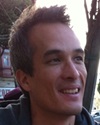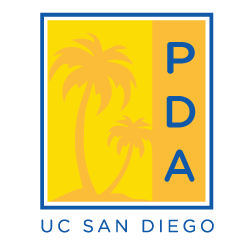
Shinji Okitsu, Ph.D.
Senior Scientist, Research and Development Institute | EMD Serono, Inc.

- Interview Overview
Interview Overview
Interviews by: Anjana Chandrasekhar
Editing: Alexandra Bortnick
1. Could you please list your previous department at UC San Diego and provide a brief description of the research you conducted?
I was a postdoc and then assistant project scientist in the laboratory of Prof. Elizabeth Winzeler in the department of pediatrics. I managed a project funded by the Bill and Melinda Gates Foundation involving scientists at UCSD and the Genomics Institute of the Novartis Research Foundation to identify novel malaria transmission blocking drugs. I was also working on a project aimed at identifying new antigens for malaria vaccine development.
2. Could you describe your current job profile?
I am a senior scientist at the EMD Serono Research and Development Institute. I work in the Exploratory Immunology group. Our group's role is to identify novel targets for drug development. This involves a lot of basic research to understand mechanisms and pathways that lead to disease. I manage one research associate and still do benchwork myself. I have my own projects but I get involved in other projects where my expertise is required. I do attend many more meetings than in academia. And I do a lot of networking within the company too.
3. What made you decide to transition into your current position?
I was always open to both career paths, academia and industry. Multiple factors played into my decision. I do not have a CV that allowed me to apply for a faculty position back home in Switzerland or another university of my choice. And I was not willing to apply anywhere to get a chance at starting my own lab. I started applying for industry positions and realized very quickly that it wouldn't be much easier to find what I was looking for in the current economic climate. It was through connections that I finally found my current job.
4. Apart from the research you conducted, do you feel like anything in particular has helped you to acquire your current position?
What helped me most was a former postdoc colleague of mine who recommended me to the hiring manager. This gave me an opportunity to introduce myself and my research. The biggest hurdle in my job hunt was visibility, getting an interview.
5. Could you list some of the most striking similarities and differences between your post-doc and current position?
The biology is what doesn't change plus the scientific thinking and experimental approaches. The scale of experiments and the possibilities are different though. This is in a medium size pharmaceutical company and might be different in smaller companies. There is no academic freedom to investigate whatever seems interesting but resources are more readily available once the company commits to a project. The other big difference is the collaborative environment. Collaborations, help and advice are much more part of the daily routine than in academia. It is more like working in a laboratory with 50 group members.
6. Is there any specific challenge (during the entire process of transitioning) that you would like to highlight and if so how did you overcome it?
Applying and getting a job was so far the most challenging part of the transition. Workshops on how to apply and interactions with people in industry are very valuable. But what helped me in the end was networking and knowing the right people. Research in industry is much more straight forward and goal driven. Being part of a team makes you more responsible for what you do and you are more accountable. Communication is important and you are the expert in your field. This means you may be working on many different projects and provide your input and priorities can change quickly. I try to learn from my colleagues who have been in industry for a while. See how they organize their projects, their day-to-day work. Also managing people is something that is not easy in the beginning. But coming from academia you are not supposed to be good at all of this from the start. I try to contribute with my scientific expertise and learn everything else on a daily basis.
7. Could you describe your goals and ambitions for the next 5 years?
I want to learn the ins and outs of industry research. I want to make myself visible within the company and contribute to ongoing and future research with my scientific experience.
